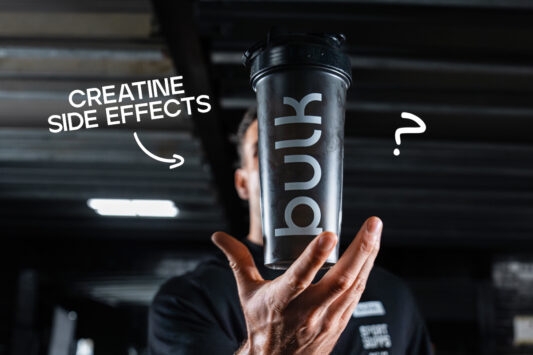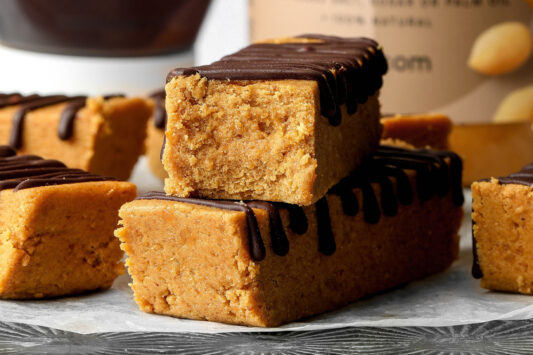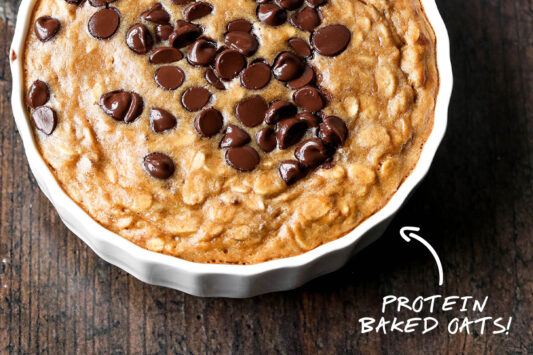Knowing what to put in your body and how much of each macronutrient to consume is a tough nut to crack. Many people consume as much protein as they can and opt for high-protein diets, while others fall short on their daily consumption and don’t eat enough of it.
This article should help you to understand how much protein you need, depending on your body composition and goals, and will also explain what amino acids are and why they’re so important.
Are You Eating More Protein Than You Need?
On average people who weight train tend to eat far more protein than they actually require. There seems to be a stigma around building muscle requiring a very high protein diet; and while it’s true that protein and amino acids are necessary to build muscle, the amounts of which you need to consume aren’t as high as you’d think.
It’s likely that you don’t need to be eating that extra tin of tuna or chicken breast each evening in order to hit your daily requirement of protein, and you could actually replace those calories with carbohydrates. In fact, a lot of people’s diets are split into a ratio of 40% protein, 40% carbohydrates and 20% fats; which could be considered overkill in terms of your body needs for protein to maintain and build muscle.
How much Protein do You Really Need?
Guidelines on protein consumption vary from 0.8g to 1.2g per lb of lean body mass. Just to put this into perspective, I’ve outlined a person’s possible daily macronutrients to maintain weight at 185lbs (Just based off BMR – which doesn’t take into account exercise levels and total expenditure throughout the day).
Example: Joe (Male), 21. Weighs 185lbs, is 6ft tall. Has 20% body fat. Needs to consume 2000 calories before any daily activity to maintain the same weight.
- Joe weighs 185lbs and has 20% body fat, which means Joe’s lean body mass is 148lbs.
- If we allocate 1g of protein per 1b of lean body mass to Joe then he’ll be set to eat 148g of protein per day. This would be a percentage of 29.6%
- An average fat intake would vary from 15-30%, so we’ll allocate 25% of total calories to fats for Joe too, which equals 55g.
- Finally, we allocate the remaining calories to carbohydrates which equates to 913 calories and 228g of carbohydrates, which is a percentage of 45.65%
Tip: If your aim is to lose fat, it may be wise to up your protein intake to the higher end of the spectrum (1.2g per lb of LBM). Likewise, if your aim is to gain muscle, you’ll be in a surplus of calories and will not require as much energy from protein so you can stick to 0.8g per lb).
Common Mistakes When Calculating Your Protein Intake
- People tend to consume as much protein as they can. You should calculate how much your body needs in order to balance your nutrition more effectively.
- Don’t forget the amount of protein you require is based off your lean body mass (LBM) as well, so rather than Joe consuming 200g of protein he only really needs 148.
Should I Use Whey Protein?
Whey Protein and other protein powders boasts a low fat and low carbohydrate content, making it a very useful supplement for gathering high quality protein quickly. Supplementing protein can cut the cost of expensive meats and is a very convenient way to reach your protein requirement for the day.
Why Are Amino Acids Important?
20% of the human body is made up of protein; it’s used to create muscle, bones, hair, fingernails… you name it. Protein is made up of amino acids, which makes them very important in the process of creating cell structure as well as the transport and storage of nutrients. Amino acids are essential for healing bones, muscles, tissue and vital organs.
Although there are 21 amino acids, there are two categories of amino acids you’re most likely to be aware of; these are essential amino acids (EAAs) and branched chain amino acids (BCAAs). What you’ll likely be unaware of is that there are 8 EAAs and 3 BCAAs… and those 3 BCAAs also make up 3/8 of the EAAs. So, 3 of the essential amino acids are branched-chained.
The three BCAAs are Leucine, Isoleucine and Valine.
What’s So Important About the Three BCAAs?
These are the 3 amino acids which are the most important for energy production and muscle metabolism. One of the main benefits of BCAAs is that they help to maintain muscle when you’re in a calorie deficit. Tailoring your nutrition towards fat loss can be catabolic, meaning that your body can breakdown muscle while you’re losing weight if you’re not too careful. BCAAs can help to hinder the breakdown of muscle tissue while in a calorie deficit, granted that you’re consuming enough protein.
You should aim to consume 5-10g of BCAAs per day depending on your calorie intake; higher intakes are recommended for lower calorie diets. BCAAs are most optimally taken using a blend of 2-1-1, which would mean 2 parts Leucine, to every 1-part Isoleucine and Valine.
How Can You Ensure You’re Getting Enough BCAAs?
Some of the most popular foods containing BCAAs are; chicken breast, tuna, eggs, salmon and turkey. Although, per 1g of protein gathered from chicken breast, you’ll only gather 0.08g of Leucine. This would mean you’d have to gather around 50g of protein just from that protein source in order to gather the sufficient amounts of BCAAs.
However, to be on the safe side you can opt to use a BCAA supplement. BULK POWDERS® BCAAs offer the perfect blend of BCAAs at a 2-1-1 ratio.
Related articles
Looking to learn more? We believe that every person, with support, has the right to transform their lives through fitness. That’s why we’ve put together hundreds of articles with expert advice, all to help you on your fitness journey.
What is L-Carnitine? BCAAs vs Amino Acids
Beginners guide to HMB What are BCAAs?
BCAA and muscle mass BCAA : The Building Blocks of Muscle
Pheylalanine side effects Amino Acids and BCAAs
Beginner’s Guide to Amino Acids Guide to flavoured leucine, creatine and glutamine
















